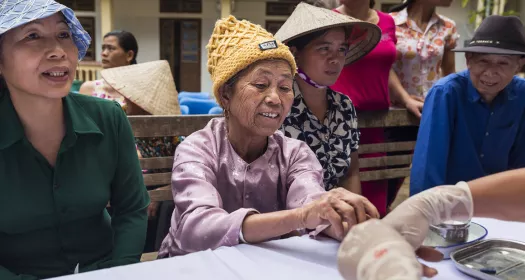Time frame: 2014 – end of March 2018
The Namibia Malaria Elimination Research Partnership (NAMEP) in Zambezi included two phases: to understand malaria transmission and build capacity for surveillance and response; and to test innovative response strategies to eliminate malaria.
The partnership was developed in a context whereby Namibia had made significant progress in reducing malaria, reaching the stage of pre-elimination, and had identified the importance of identifying and treating the disease both in people with symptoms of malaria and in their asymptomatic contact persons. This strategy towards elimination is called targeted parasite elimination (TPE).
In this initiative, the Novartis Foundation worked with partners to define the optimal strategy to interrupt malaria transmission, while building evidence on how TPE works and strengthening health surveillance and response capabilities.
After the Malaria TPE Strategy gathered evidence, the results were analyzed to help inform Namibia’s approach to eliminating malaria.
Partners
TPE partners included the Global Health Group at the University of California, San Francisco, the University of Namibia, the National Vector Borne Disease Control Programme at the Namibian Ministry of Health and Social Services, the London School of Hygiene & Tropical Medicine and the Clinton Health Access Initiative.






